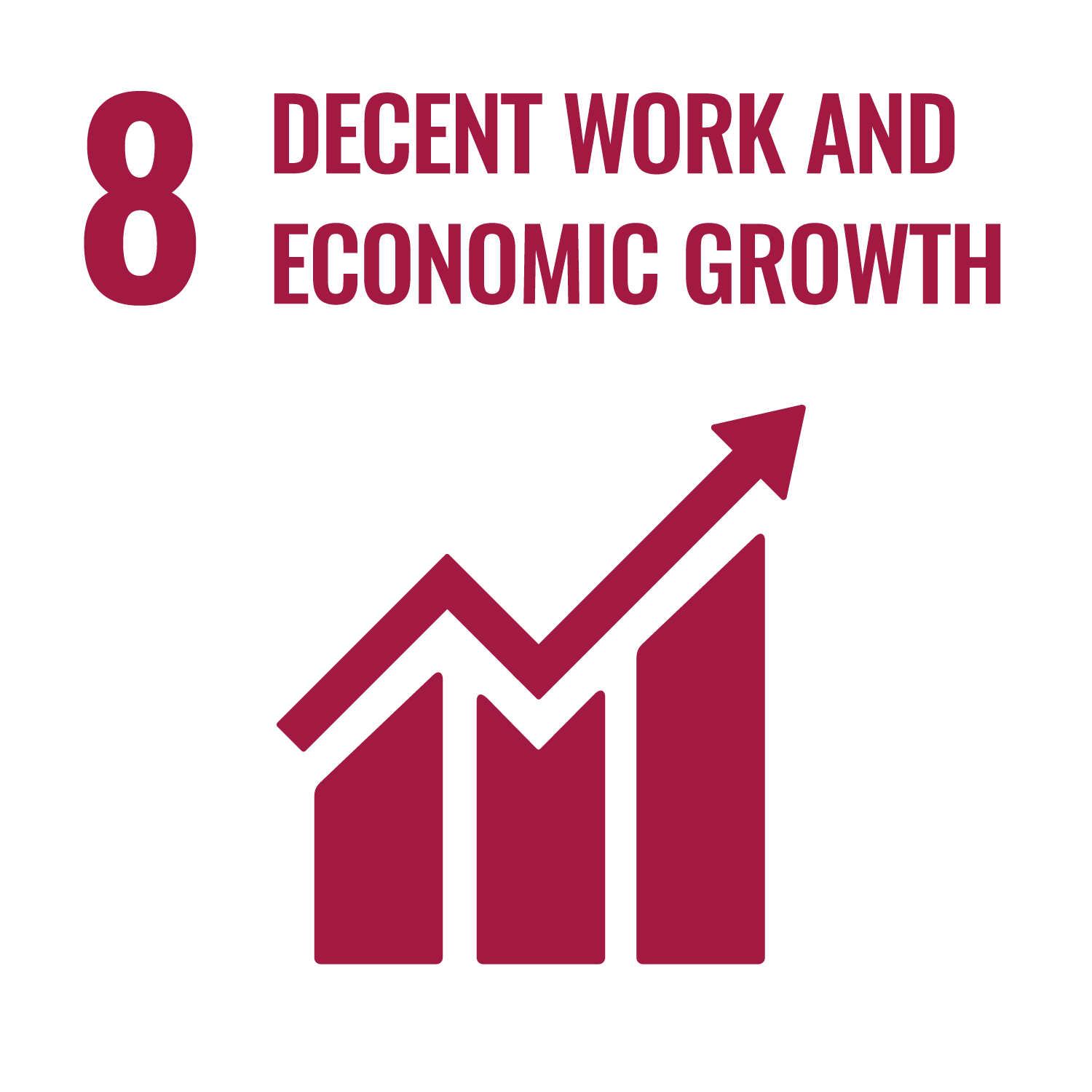 Goal 8. Decent Work and Economic Growth
Goal 8. Decent Work and Economic Growth
The Arab Academy for Science, Technology, and Maritime Transport (AASTMT) conducted a workshop in Alexandria to explain the institution's approach to tracking gender pay equity and its relevance to sustainable development goals
On the 11th of April 2022, the HR department at the AASTMT organized a workshop in Alexandria branch to its faculty and staff. The workshop organized by AASTMT's HR department in its Alexandria branch held paramount importance as it directly aligned with Sustainable Development Goal 8 (SDG 8), which underscores the significance of sustained, inclusive, and sustainable economic growth, full and productive employment, and decent work for all. By educating its workers and staff on gender pay equity and its commitment to tracking and rectifying pay disparities, AASTMT not only promoted fairness within its workforce but also contributed to a more equitable and inclusive society. Achieving gender pay equity was a critical component of SDG 8, as it ensured that all employees, irrespective of gender, had equal access to opportunities and fair compensation, ultimately fostering a harmonious work environment and supporting the broader goal of sustainable economic growth and decent work for every individual.
The organization of the workshop proceeded in the following manner:
1. Workshop Introduction: The HR department at AASTMT's Alexandria branch organized a workshop aimed at educating its workers and staff on the institution's commitment to gender pay equity. The workshop began with an introduction highlighting the importance of this initiative, emphasizing how it aligns with the broader goals of promoting sustainable economic growth and decent work, as outlined in Sustainable Development Goal 8 (SDG 8).
2. Understanding Gender Pay Equity: The workshop delved into the concept of gender pay equity, explaining how it involves ensuring that all employees, regardless of gender, receive equal pay for equal work. Attendees gained a deeper understanding of why pay disparities exist and how they can impact the overall work environment and employee well-being.
3. AASTMT's Approach: The workshop provided insight into how AASTMT tracks pay scale equality among genders. Attendees learned about the organization's data collection and analysis process, job evaluation and classification, and pay gap analysis. It was emphasized that AASTMT's approach is designed to be objective and free from gender bias.
4. Identifying and Addressing Disparities: The workshop outlined AASTMT's proactive approach in identifying and addressing pay disparities. Attendees were informed about the institution's commitment to conducting investigations into the underlying causes of pay gaps and taking necessary actions to rectify them, such as salary adjustments and policy revisions.
5. Ongoing Monitoring and Reporting: The importance of continuous monitoring and reporting was highlighted during the workshop. Attendees learned how AASTMT regularly reviews and updates its compensation practices to ensure ongoing equity, keeping in line with the institution's commitment to gender pay equality.
6. Engaging the Workforce: The workshop emphasized the importance of engaging the workforce in promoting gender pay equity. AASTMT actively communicates its commitment to this cause, fosters transparency, and conducts training and awareness programs to educate employees and management about the significance of gender pay equity.
In conclusion, the workshop organized by the HR department at AASTMT's Alexandria branch served as an essential platform for conveying the institution's dedication to gender pay equity. It empowered workers and staff with knowledge about the organization's approach and how it contributes to sustainable development goals, particularly SDG 8. By fostering a fair and inclusive work environment, AASTMT not only advances gender equality but also promotes sustainable economic growth and decent work for all, making a meaningful contribution to societal well-being.


